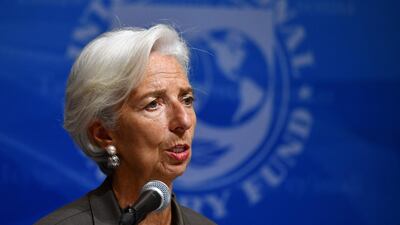It has been nearly eight decades since the US president Franklin Roosevelt and British prime minister Winston Churchill drew up the Atlantic Charter as a way of preventing retaliatory trade tariffs and securing economic security and prosperity for their nations. That, in turn, paved the way for the General Agreement on Tariffs and Trade (GATT), signed by 23 nations in Geneva in October 1947 to kickstart a battered post-war global economy. As “the most comprehensive, significant and far-reaching negotiations ever undertaken in the history of world trade”, it provided a multilateral economic framework for the first time, and a new world order. Although it morphed into the World Trade Organisation in 1995, the principle of unrestricted trade enshrined in GATT remained at the heart of the WTO’s mission to oil the wheels of global commerce.
Now the flouting of the organisation's rules by the US is threatening to undermine an agreement that for more than 70 years has helped protect and generate jobs, growth and development around the world. The closing statement by world leaders at the G20 summit in Buenos Aires points the finger squarely, if not entirely fairly, at the WTO. It is, they suggest, "falling short of its objectives" and must be reformed. But some blame can be apportioned elsewhere. One of the WTO's members is the US under Donald Trump and the tacit acknowledgment of his role in unravelling the world order is almost certainly embedded in the statement: "We also note current trade issues". This was G20 code for the trade war between the US and China which, if allowed to escalate, will have catastrophic consequences for the entire world.
Certainly, the WTO is in need of reform but it will have little impact if nations refuse to abide by its rules. It fell to Christine Lagarde, managing director of the International Monetary Fund, to speak truth to power in Argentina. Her message was not for the WTO but for the world's leaders: fix trade, or see growth and jobs suffer. Mr Trump has announced that he is putting on hold for 90 days his controversial plan to impose another round of tariffs on Chinese goods to allow time for negotiations. This is a welcome move but a temporary solution to a problem entirely of his own making. As with his threatened withdrawal from the WTO, the real purpose of the trade dispute with China is to feed a domestic narrative that suggests the world is taking advantage of the US.
Mr Trump has dismissed the WTO as “the single worst trade deal ever made”. Yet he must realise what was clear to his predecessors: that when the world’s biggest economy starts shredding the terms of agreement of international institutions, every country is poorer as a result, including his own. With so much at stake, it is essential that everyone plays by the rules.

